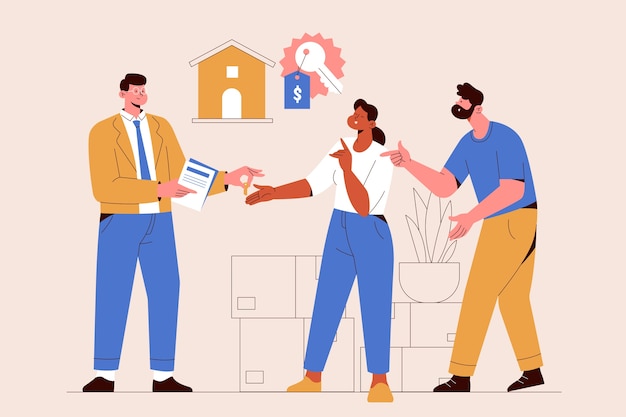
Are you planning to buy a house? Your down payment isn’t the only financial aspect you need to consider. To secure your home loan and finally hold the keys in your hand, you’ll also have to cover closing costs — the fees related to your mortgage. Understanding closing costs can be a bit tricky, but we’re here to help. We’ll break down everything you need to know about closing costs before completing your loan.
WHAT ARE CLOSING COSTS?
Closing costs refer to the fees imposed by your lender, real estate agent, and other third parties involved in the transaction when buying a house. These fees encompass various charges like property expenses, mortgage application procedures, and other documentation processes. As a homebuyer, you’re generally responsible for most of the closing costs, but sellers often handle real estate agent commissions and transfer fees.
WHAT DO CLOSING COSTS TOTAL?
Closing costs usually amount to between 3 – 6% of the loan value. So, if your mortgage amounts to $200,000, anticipate closing costs ranging from $6,000 to $12,000. You’ll receive a final Closing Disclosure detailing your closing costs before finalizing your loan, so make sure to compare it to the Loan Estimator you received when you initially applied for your loan.
WHAT FEES ARE COVERED?
Closing costs cover a mix of one-time charges and initial installments of recurring costs. These costs can vary based on factors such as location, size, and the cost of the property you’re purchasing.
Here’s a rundown of what to expect.
APPLICATION FEE
Some lenders charge a one-time application fee when you formally submit your loan application. While not all lenders implement this fee, it’s usually paid upon application and often nonrefundable.
CREDIT REPORT FEES
These fees cater to the cost of creating copies of your credit reports that evaluate your mortgage loan application. Your credit score, included in this report, significantly impacts the interest rate offered.
LOAN ORIGINATION FEE
This fee covers the lender’s service of processing your loan. It typically accounts for between 0.5% and 1% of the total loan amount, potentially amounting to several thousand dollars.
GOVERNMENT RECORDING COSTS
This fee accounts for the mandatory registration of your property, mortgage, and other official documents related to your home loan. State and local government agencies usually assess this fee, and it can fluctuate according to the agency.
APPRAISAL FEES
This fee goes to the professional who determines the value of the home being purchased. Fees may vary based on factors like the size and value of the house.
HOME INSPECTION FEE
This fee covers the inspector’s service of examining the physical structure and condition of the house. While not mandatory, a pre-close home inspection is highly recommended to identify any possible issues with the house before the purchase.
TITLE INSURANCE
Title insurance fees are paid to a title company that searches county records to verify the property’s title is clear and free of potential complications like pending debts or liens.
SURVEY FEES
These fees are for a property surveyor who evaluates the property you’re buying, defining the property’s boundaries and offering advice if you plan future construction.
ATTORNEY FEES
In some states, an attorney oversees the closing process. This professional doesn’t represent either the buyer or the seller, and typically, the cost of their service is shared equally among parties.
HOMEOWNERS INSURANCE
Most lenders require the first year of your homeowner’s insurance premium to be paid on or before closing day.
INITIAL ESCROW PAYMENTS
These are funds deposited into your escrow account for future homeowners insurance and property taxes.
FINAL SAY
Your closing costs will depend on your loan type, your home’s value, and your state’s laws. Sellers may also cover closing costs, depending on the sales agreement.
To save on closing costs, consider negotiating with your lender or ask your seller to pay a percentage. Another option is opting for a no-closing-cost loan.


